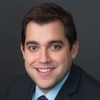Injury Claims and Workers' Comp for Remote Employees: OSHA Requirements, Documentation, State Regs

Welcome! Strafford is now BARBRI! The expert courses you know from the trusted global leader in legal education.
Course Details
- smart_display Format
On-Demand
- signal_cellular_alt Difficulty Level
- work Practice Area
Employment and Workers Comp
- event Date
Wednesday, July 6, 2022
- schedule Time
1:00 p.m. ET./10:00 a.m. PT
- timer Program Length
90 minutes
-
This 90-minute webinar is eligible in most states for 1.5 CLE credits.
-
Live Online
On Demand
This CLE course will advise counsel on establishing policies for remote employees in order to mitigate the risks of workers' compensation claims. The panel will discuss best practices to mitigate risks, how to comply with various state requirements, and what documentation of injuries will be necessary for both insurance and OSHA compliance purposes.
Faculty

Mr. Lewis concentrates his practice on workers’ compensation defense, representing large self-insured employers and construction companies through all aspects of litigation, from inception through trial and appeals. He is also well versed in general municipal law representing municipalities as well as numerous public sector unions on behalf of police, fire and correctional personnel with matters regarding Section 207(a) and 207(c) claims.

Ms. Motola-Davis has decades of trial practice and civil litigation experience representing insurance companies, insureds, and self-insureds in a broad range of subject matters including admiralty, employment discrimination, personal injury, and workers’ compensation matters. She has handled hundreds of trials and depositions of expert witnesses in workers’ compensation matters and has argued successfully before the Rhode Island Supreme Court several times. Additionally, Ms. Motola-Davis has represented clients in the hospitality industry, including many well-known national restaurants, retail stores, and hotels, in general liability and workers’ compensation matters. She frequently provides education and training on relevant topics and presents seminars on admiralty law and workers’ compensation.

Mr. Scholtz defends long-term care clients’ workers’ compensation litigation claims and advises clients on a variety of issues ranging from OSHA compliance to subrogation recovery of medical bills for residents. His practice as a workers’ comp defense attorney also includes local manufacturers, and the Port Authority of Allegheny County. Mr. Scholtz also represents clients who own and/or manage rental properties in a variety of matters including landlord-tenant disputes, condemnation and eminent domain litigation, PA realty transfer tax matters, property disputes, and tax assessment appeals.

Ms. Thomas’ practice involves representing employers in the defense of complaints for class action and single-plaintiff matters. She also provides day-to-day counseling on a wide variety of labor and employment law issues, including wage-and-hour issues, disability and family/medical leave issues, discipline, and termination. Ms. Thomas also conducts supervisor and non-supervisor trainings on behalf of clients regarding sexual harassment and workplace behavior.
Description
For many people, the office is no longer a single physical location, and work can be done just about anywhere. But just as work can be done anywhere, workplace injuries can also now occur anywhere. This places employers in an unexpected situation when a workplace injury occurs in a location outside of their control.
When an employee files a claim for injuries occurring somewhere other than the employer's premises, state workers' compensation statutes examine the specifics. For instance, in Pennsylvania these claims distinguish between stationary and traveling employees. Courts have determined that an employee was not "traveling"; she was working at her "home office," a fixed location approved by the employer as her secondary work premises. However, a worker who sustained injuries when she fell in a hole on the sidewalk while on a lunch break two blocks from the employer's premises, was "serving her own purposes" in choosing to leave the premises for a lunch break and not furthering the purposes of her employer.
In Florida, the evaluation for workers' compensation claims hinges not on whether an employee's "home environment" becomes her "work environment." Instead, courts have examined whether the employment activities "necessarily exposes an employee to conditions which substantially contribute to the risk of injury." The court is looking at the facts of the injury and if the risk exists whether or not the employee is at home working or whether she is at home not working.
Another thorny workers' compensation issue arises with regard to the "coming and going rule." Although the rule varies from state to state, it generally states that if an employee is injured on their commute to or from work (in other words, "coming and going") this is not considered within the course of their employment and would, therefore, not be covered. In Maryland, the employee has to show his home is a workplace and that he commenced his workday at the time he left to go to his first account in order to bring his injuries within the period of his employment. Sometimes having permission from an employer to work at home is the critical factor. In Texas, when an employee injured while working from home on a Saturday had her claim denied because she violated agency policy by working from home without prior approval.
When employees are injured while working at home, liability has to be examined in multiple scenarios. If the injury is caused by the employee's family member or housemate or the employee's landlord, new questions of third-party liability must be examined. Subrogation claims should be considered in such situations as the first report of injury and the first communications with the employee suddenly become subrogation-related--something most claims professionals are not accustomed to.
Listen as our expert panel discusses the intricacies of workers' compensation claims in a work from home environment. The panel will discuss best practices for employers to establish to mitigate liability from future claims.
Outline
- Workers' compensation claims
- State and fact specific evaluations
- Traveling vs. stationary
- Activities for employer vs. serving employee's purpose
- Coming and going rule
- Permission to work from home
- State examples
- Pennsylvania
- New York
- California
- Best practices to mitigate liability
Benefits
The panel will discuss these and other key topics:
- How do workers' compensation boards evaluate risks that are inherent to the home vs. those that are brought about by employment activities?
- What is the "coming and going rule"?
- When does an employee have to have permission to work from home to establish workers' compensation rights?
Unlimited access to premium CLE courses:
- Annual access
- Available live and on-demand
- Best for attorneys and legal professionals
Unlimited access to premium CPE courses.:
- Annual access
- Available live and on-demand
- Best for CPAs and tax professionals
Unlimited access to premium CLE, CPE, Professional Skills and Practice-Ready courses.:
- Annual access
- Available live and on-demand
- Best for legal, accounting, and tax professionals
Unlimited access to Professional Skills and Practice-Ready courses:
- Annual access
- Available on-demand
- Best for new attorneys
Related Courses

PAGA Employment Claims Legislative Update: Key Reforms, Standing, Penalties, Arbitration, Cure Provisions
Thursday, November 13, 2025
1:00 p.m. ET./10:00 a.m. PT
Recommended Resources
Making Continuing Education Work for You, Anytime, Anywhere
- Learning & Development
- Career Advancement